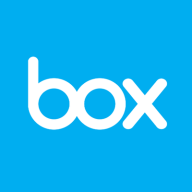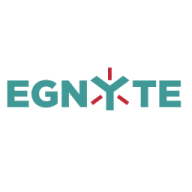


Find out what your peers are saying about Dropbox, Google, Microsoft and others in Content Collaboration Platforms.



Box is a Modern Content Management Platform for companies of all sizes and industries. The difference that Box brings is that it offers the security and controls admins need with the sharing and collaboration capabilities end users want. Box has made it easier for people to securely share ideas, collaborate and get work done faster. Today, more than 62,000 businesses, including 59% of the Fortune 500, trust Box to manage content in the cloud.
The Box platform provides HIPAA, FINRA, FedRAMP, and many other compliances to go with granular access permissions and advanced security capabilities.
By using Box you can sync, share, and collaborate on all types of files, anywhere, on any device - but that's just the beginning. You can choose where to store your data, to manage your own encryption keys, and set workflows to automate content-based processes. You can also assign custom metadata tags to content, watermark sensitive content, and set file retention or legal hold policies.
Box has deep, native integrations with Microsoft Office and Outlook, Google Apps for Work, Salesforce, Netsuite, Docusign, Adobe, and many other best-of-breed solutions you may already be using.
Dropbox is utilized for storing and sharing files, synchronizing documents across multiple devices, and ensuring data backups for both personal and professional use.
Users rely on Dropbox for collaborating on projects, managing personal storage, and exchanging files. It is often used for file version control, meeting notes, and as a central storage unit. Dropbox provides seamless data access across desktops, laptops, mobiles, and the cloud. It is valued for its accessibility, synchronization, strong security, user-friendly interface, robust sharing capabilities, Microsoft Office integration, efficient performance, and reliable storage. It supports multiple users, real-time editing, offers backup options, and has free usage tiers. Dropbox manages large files, maintains version history, and allows external sharing without extra costs. However, there are areas for improvement in security and privacy, pricing, storage capacity, and tool integration. Users experience synchronization issues, limited collaboration features, and a need for better real-time editing. Improvements are also desired in mobile access, search functionality, and setup complexity, alongside better performance and scalability.
What are Dropbox's most important features?Dropbox is implemented diversely across industries, including legal, healthcare, and media. Legal firms use it for secure document storage and sharing. Healthcare professionals rely on it for maintaining patient records while ensuring compliance with privacy laws. Media companies utilize Dropbox for collaborative projects and managing large multimedia files efficiently.